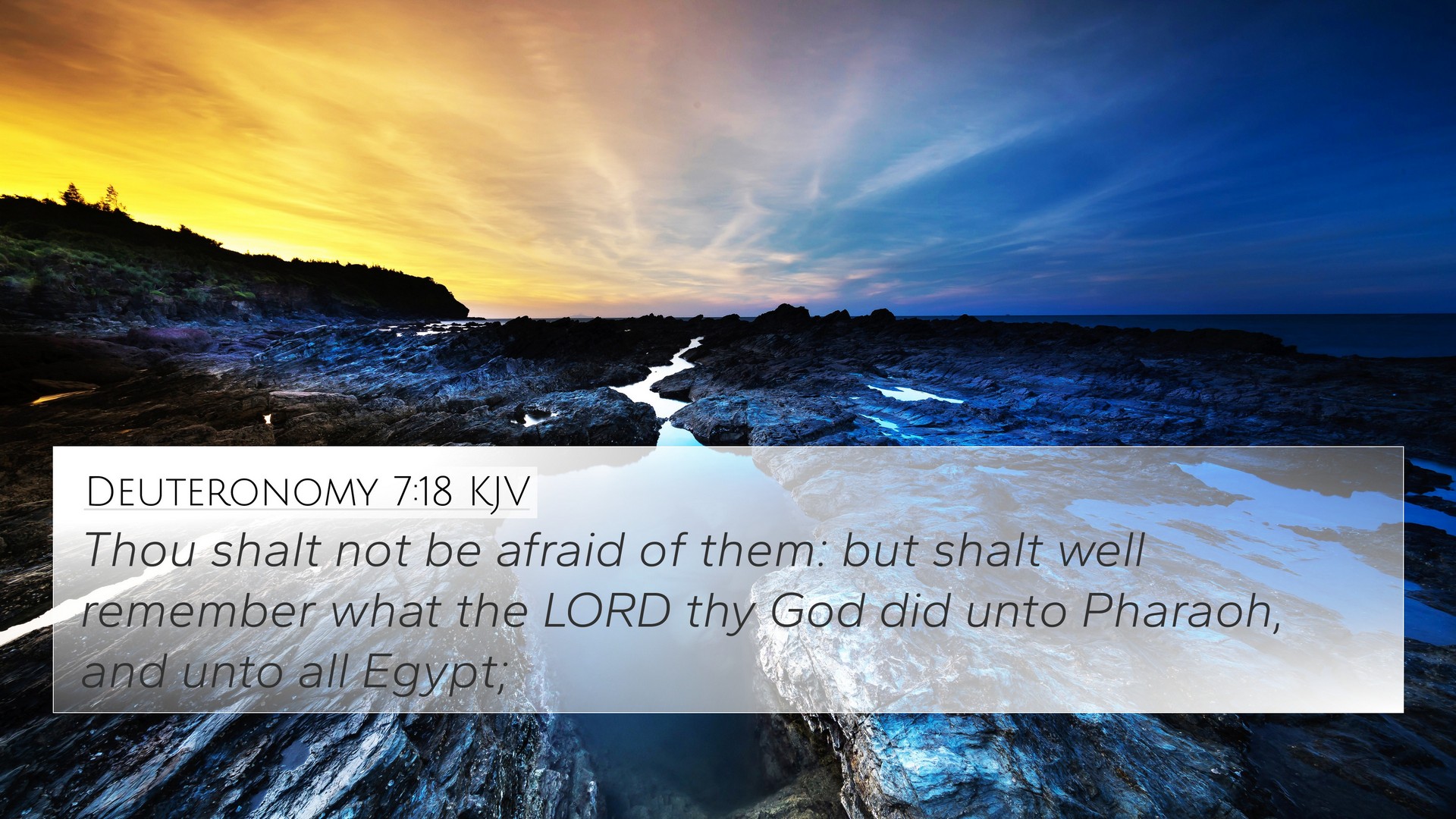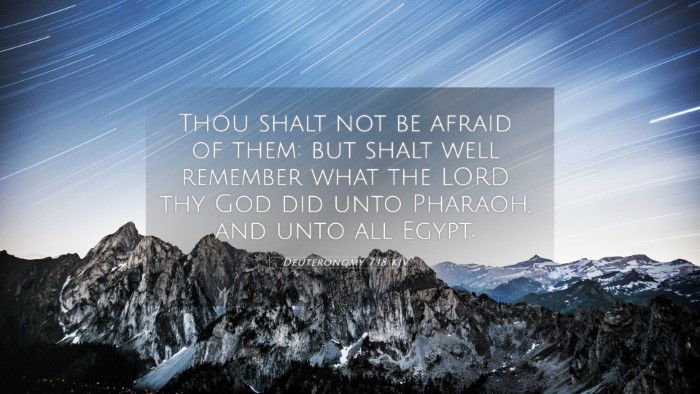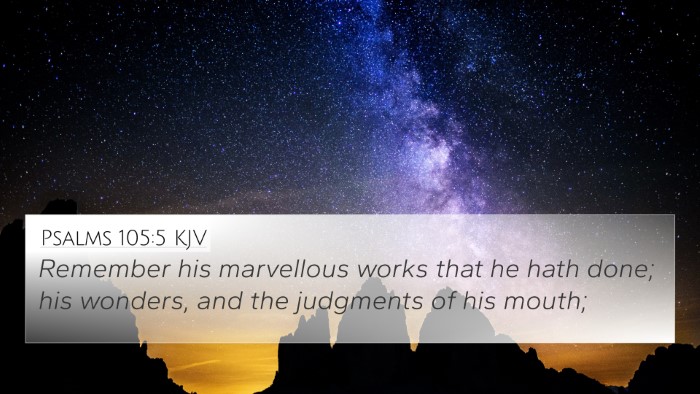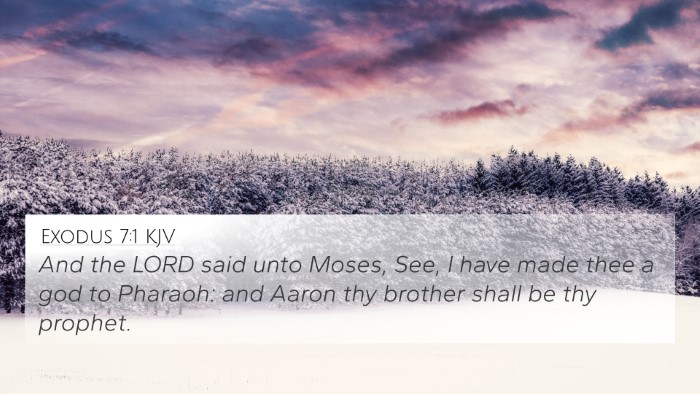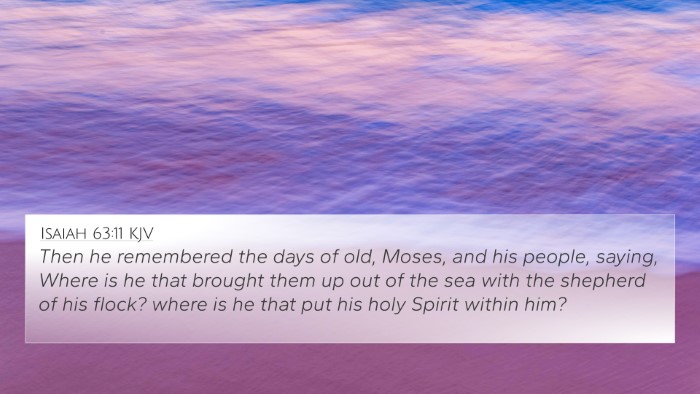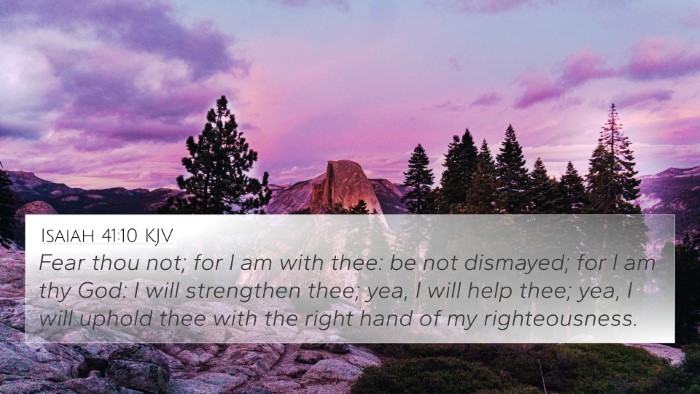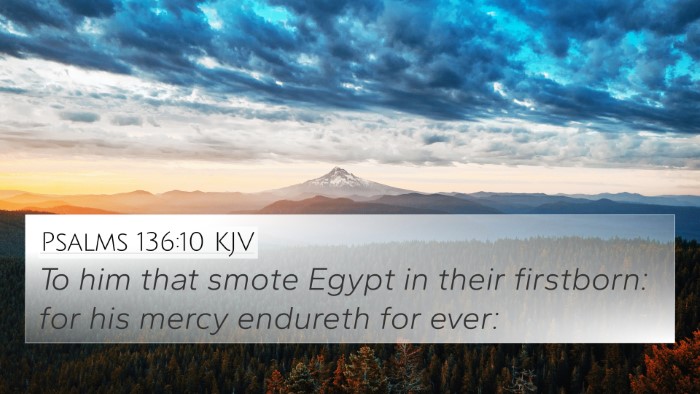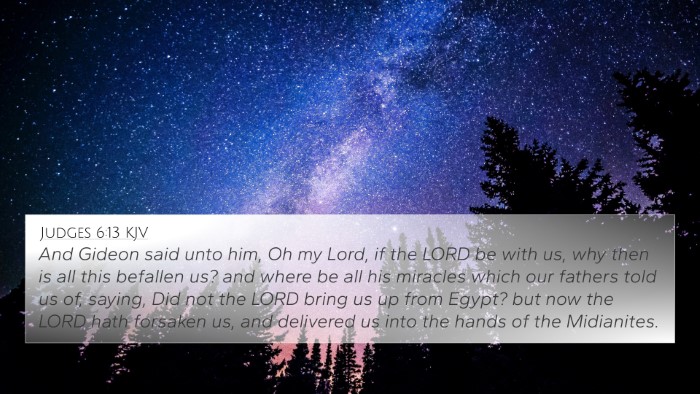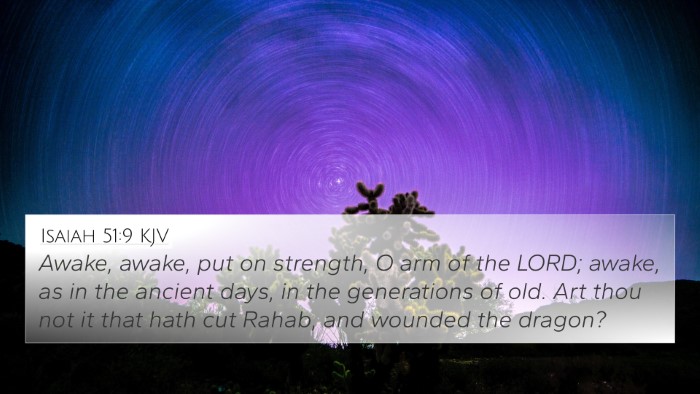Understanding Deuteronomy 7:18
Verse: "Thou shalt not be afraid of them: but shalt well remember what the Lord thy God did unto Pharaoh, and unto all Egypt."
Deuteronomy 7:18 conveys a powerful message of reassurance and remembrance. It encourages believers to not fear their adversaries, but rather to recall the mighty acts of God, particularly in the context of the Israelites' exodus from Egypt.
Meaning and Insights
Drawing from public domain commentaries, we can emerge with a well-rounded interpretation:
- Matthew Henry: Highlights the significance of remembrance in faith. He notes that recalling God's past deliverances strengthens believers against present fears. This verse functions as a reminder that past victories can bolster confidence in dealing with future struggles.
- Albert Barnes: Emphasizes the avoidance of fear by recollecting the Lord’s past interventions, particularly His deliverance from Egypt. Barnes asserts that understanding God's omnipotence over one's circumstances can help believers face challenges courageously.
- Adam Clarke: Suggests a deeper layer of meaning by connecting the context of God's covenant with Israel and their divine protection. Clarke implies that the remembrance of God's deeds serves not only to instill courage but also to reaffirm the unique relationship between God and His people.
Connections to Other Scriptures
This verse resonates with various other scriptures reinforcing the themes of remembrance, courage, and divine intervention. Here are key cross-references:
- Exodus 14:13-14: "And Moses said unto the people, Fear ye not, stand still, and see the salvation of the Lord, which he will show to you today..." - Affirmation to stand firm in faith amidst challenges.
- Isaiah 41:10: "Fear thou not; for I am with thee: be not dismayed; for I am thy God: I will strengthen thee..." - Encouragement to trust in God's presence.
- Psalms 77:11-12: "I will remember the works of the Lord: surely I will remember thy wonders of old." - A corporate call to remember God's mighty acts.
- Psalms 143:5: "I remember the days of old; I meditate on all thy works; I muse on the work of thy hands." - Personal reflection on God's past deeds.
- Joshua 1:9: "Have not I commanded thee? Be strong and of a good courage; be not afraid, neither be thou dismayed..." - An echo of the encouragement found in Deuteronomy 7:18.
- Romans 8:31: "What shall we then say to these things? If God be for us, who can be against us?" - Assurance of God's support in overcoming fears.
- Philippians 4:6-7: "Be careful for nothing; but in every thing by prayer and supplication... the peace of God..." - A directive to combat anxiety with prayer and remembrance.
Practical Applications
Remembering God's Faithfulness: Make intentional time to reflect on past experiences where you saw God’s hand at work in your life.
Seeking Courage in Fearful Times: Whenever fear arises, recite passages that remind you of God’s promised presence. This aligns with the scriptural cross-referencing method, enriching your understanding through the connected truths of the Bible.
Tools for Deeper Study
Utilize the following resources to enhance your study of Bible verse connections:
- Bible Concordance: A comprehensive tool for finding related verses and concepts.
- Bible Cross-reference Guide: A practical guide to tracing themes throughout scripture.
- Bible Chain References: Establish meticulous links between biblical texts.
- Comprehensive Bible Cross-reference Materials: Invaluable for thorough study and sermon preparation.
Conclusion
Deuteronomy 7:18 serves as a pillar of hope and assurance, reminding believers of God's unwavering support as they face their fears. By integrating past divine interventions with current challenges, individuals can foster a resilient faith. Cross-referencing this verse with related scriptures not only deepens understanding but also highlights the interconnectedness of God's Word, providing a richer spiritual experience.
